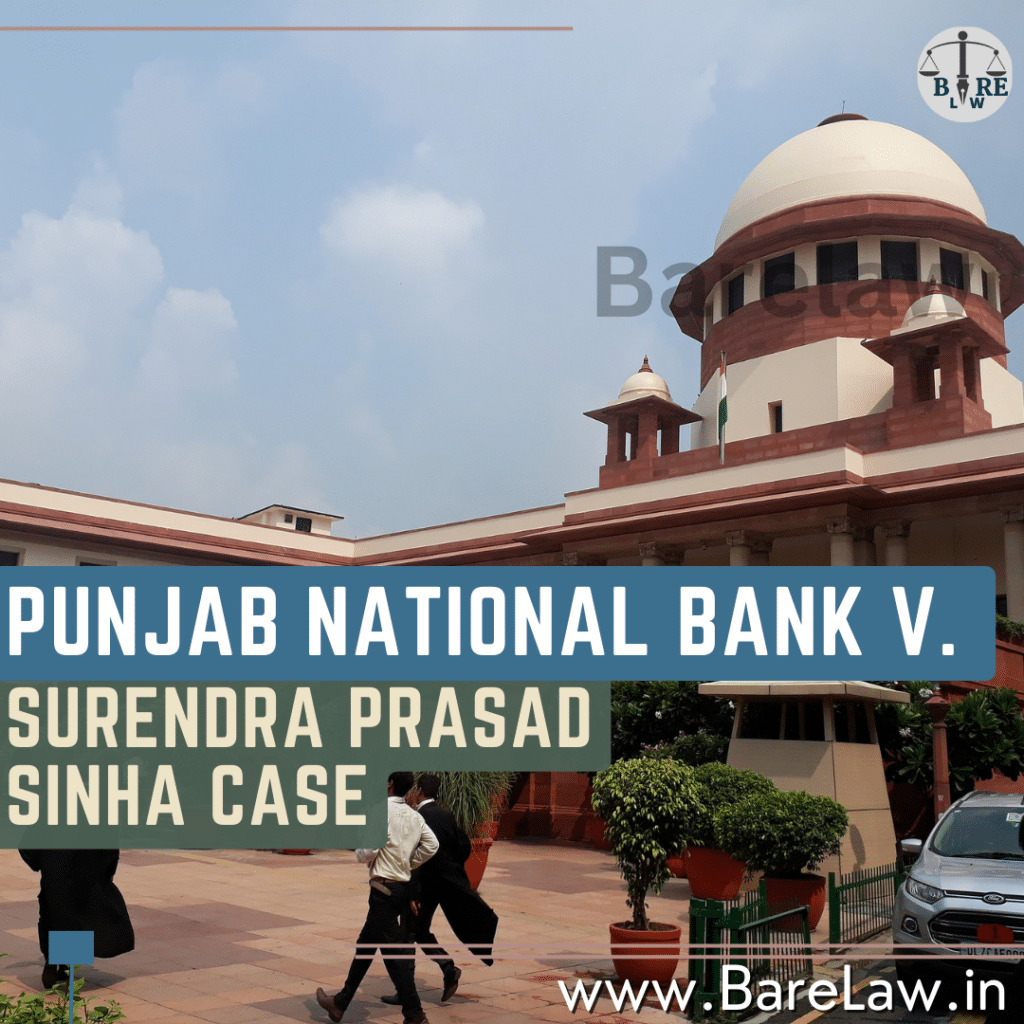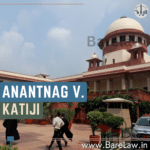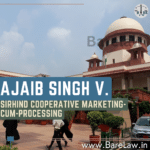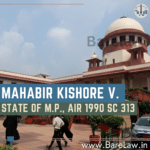
Table of Contents
Punjab National Bank v. Surendra Prasad Sinha (AIR 1992 SC 1815)
Introduction
The 1992 Supreme Court case Punjab National Bank v. Surendra Prasad Sinha (AIR 1992 SC 1815) is a landmark decision on Indian Banking law and the interpretation of Limitation Act. The case includes loan guarantees, defaults and limitation laws, thus showing how banks and guarantors relate to each other within legal framework.
Case Background
This dispute stems from a loan of Rs 15,000 that Punjab National Bank lent Sriman Narain Dubey in 1984 with the guarantee of Surendra Prasad Sinha and his wife Annapoorna. As security for this guarantee, the guarantors tendered a Fixed Deposit Receipt (FDR) worth Rs.24000 which upon maturity was valued at Rs.41292. Upon default by the principal debtor, an amount was adjusted from the FDR and balance credited into Sinha’s account. That money according to Sinha himself was embezzled by the bank because it has become barred by limitation in 1987 after three years since it was lent.
Legal Contentions
The major question under consideration was whether or not Limitation Act governs this situation herein? For example, he contended that since debt recovery became time-barred for the bank; therefore they have lost their right over proceeds from FDR’s as collateral security provided by him and his wife.The appellant bank argued against this view claiming that while a remedy like suing dies when limit period lapses, however they retained their right to the indebtedness itself.In other words they were permitted by law to adjust such indebtedness against the value of FDR issued under section of negotiable instruments act executed by them as sureties.
Supreme Court‘s Analysis and Decision
This Honourable Court reviewed Limitation Act principles emphasizing its barring of remedies but not nullifying rights to be remedied.It clarified situations where although per limitation time bars, the debt itself remains alive as in the cases of money deposit or financing where judgment debtors have not yet obtained execution on their early decrees thereon. Consequently, any allegation of criminal breach of trust does not hold since the respondent bank had a right to adjust its liability from the security held against it.
Implications of the Ruling
This decision has far-reaching implications under banking law especially as concerns loans guaranteed and the status of long overdue debts. The ruling points out that despite time limitation to sue for a loan being elapsed thus relieving an insolvent debtor from any further proceedings against him/her by creditors; nonetheless, financial institutions have right to set off such sums owed using securities they hold. This doctrine securesthe rights held by banks and other financiers which therefore enable them enforce contractual obligations notwithstanding deficiencies in statute barred procedure.
Conclusion
Punjab National Bank v. Surendra Prasad Sinha is one of the first Indian banking law cases for example dealing with interpretation of Limitation Act within banking industry disputes. It explains that limitations would only bar remedy but be unable to extinguish due amounting to loss (see Hon’ble SC dictum). In consequence, it preserves well-grounded creditor’s interest and protects good name of financial instruments.





